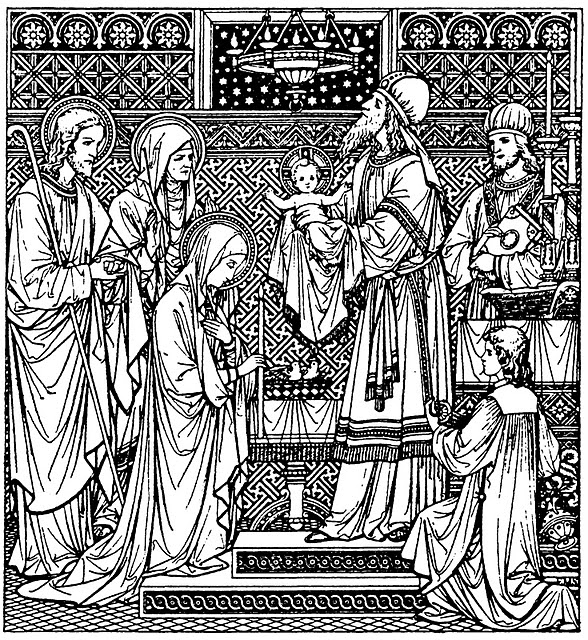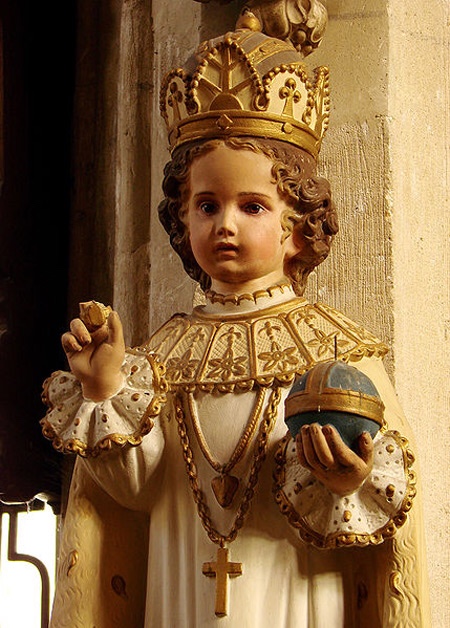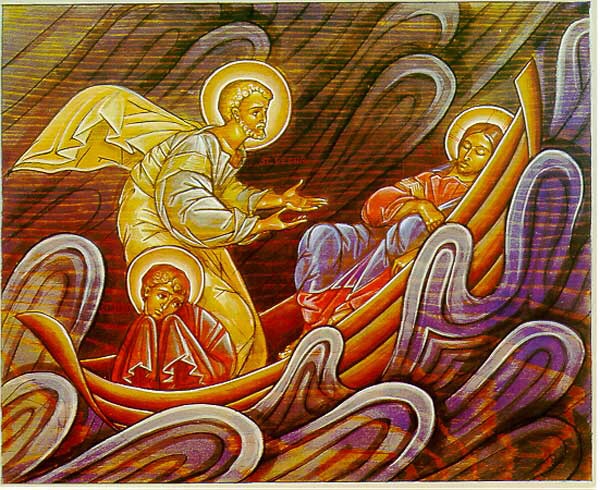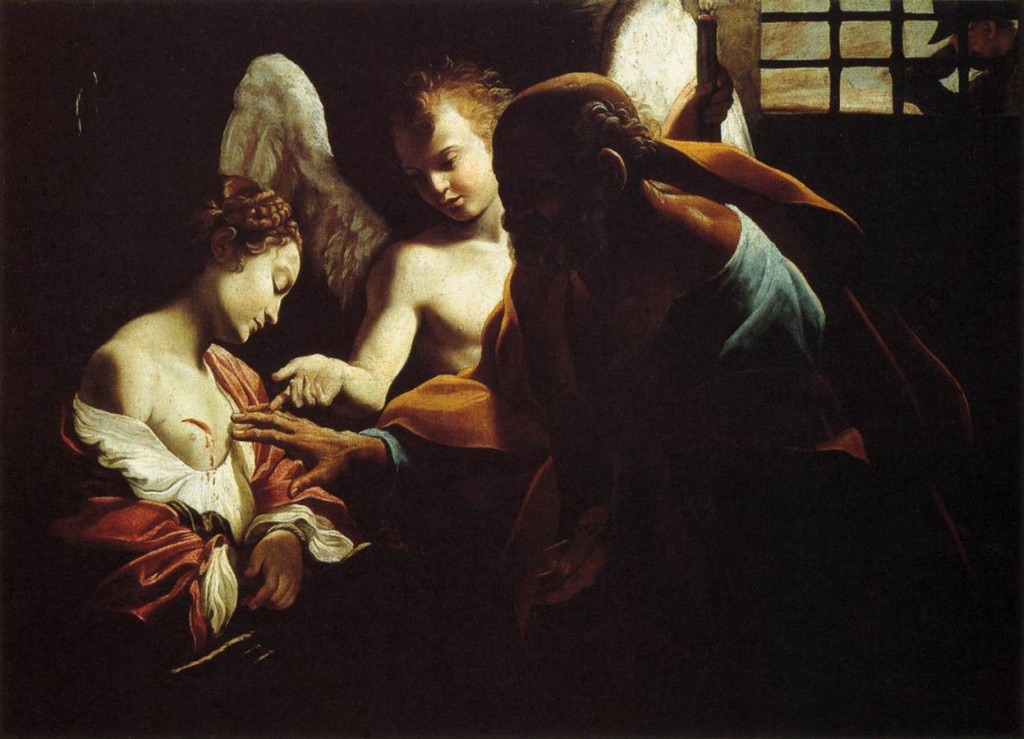The Presentation of Jesus in the Temple and the Purification of the Blessed Virgin Mary, aka Candlemas: The Antidote to Narcissism, Elitism and Oligarchy and the Bergoglian-Prevostian Antipapacy and Antichurch
Today, February 2nd, is the Feast of the Presentation of Jesus in the Temple. This is the Fourth Joyful Mystery of the Rosary, and the fruit of the mystery is OBEDIENCE and LOVE OF THE LAW.
Witnessing what we all have over the past 15+ years, the total collapse of The Rule of Law in the private sector, the government and now The Church under the Bergoglian and Prevostian Antipapacies, the Feast of the Presentation of the Lord and Purification of the Blessed Virgin is especially rich with meaning.
On the 40th day after His birth, Joseph and Mary, in perfect obedience to the Levitical Law, took Jesus to the Temple to be “redeemed”:
And every firstborn of men thou shalt redeem with a price. And when thy son shall ask thee tomorrow, saying: What is this? thou shalt answer him: With a strong hand did the Lord bring us forth out of the land of Egypt, out of the house of bondage. For when Pharao was hardened, and would not let us go, the Lord slew every firstborn in the land of Egypt, from the firstborn of man to the firstborn of beasts: therefore I sacrifice to the Lord all that openeth the womb of the male sex, and all the firstborn of my sons I redeem.
Exodus 13: 13-15
Now, stop and think about the reflexive nature of this. Jesus Christ IS HIMSELF GOD. Jesus IS HIMSELF the God that brought Israel out of bondage in Egypt. Jesus Christ IS HIMSELF GOD who commanded that all “that openeth the womb of the male sex” be sacrificed and redeemed. Jesus Christ IS HIMSELF the Author of The Law because HE HIMSELF IS THE LAW.
So, why did Mary and Joseph, and ultimately Christ Himself, an infant of 40 days of age, go to the Temple and perform this action? Furthermore, why did Mary also at the same time undergo the ritual of Purification, the rite performed on women who had just given birth?
Shouldn’t Mary, Joseph, and ultimately Christ Himself have dispensed themselves from these ritual precepts given the fact that Jesus is God Incarnate, and Mary was preserved in immaculate purity, including her virginity, and thus had absolutely no need of any rite of Purification?
Why did they comply with these Levitical precepts when they were all so clearly above them?
Because love of The Law and obedience to it is love of God and obedience to Him. Love of The Law is the rejection of CHAOS, which is evil, and the embrace of order, logic and rationality.
Can you imagine the Blessed Virgin, striding haughtily into the Temple, St. Joseph, nose in the air, looking down his nose at the priests, and declaring, “My Son will NOT be redeemed, because He is the Son of the Living God, The Messiah, and thus The Law does not apply to Him because He is its Author!” And then the Blessed Virgin saying, “And I, having conceived Him by the Holy Ghost, carried Him and borne Him, am The Mother of God, and thus will not submit to the Ritual of Purification, because I am perfectly pure!”
All of the above statements are true, but yet we can hear how narcissistic, elitist, and devoid of TRUE HUMILITY and charity they would have been. No, Jesus, Mary and Joseph all submitted to and obeyed The Law because to do so is to set a good example, namely by completely rejecting the spirit of elitism, narcissism and oligarchy that utterly permeates our culture. In submitting to The Law at not just the Presentation and Purification 40 days after Our Lord’s birth, but also eight days after His birth when He was circumcised, His Most Precious Blood being shed for the first time – a Proto-Passion, which, in and of itself COULD have been enough to redeem the whole world, because even ONE DROP of Our Lord’s Blood, contains in Itself an infinity of His Mercy – in these acts of GENUINE humility, Jesus, Mary and Joseph provided the most profound witness to the Rule of Law, and a total rejection of the spirit of narcissistic elitism and the chaos that flows from it.
What do we see today? We saw an Antipope, falsely installed after an invalid attempted partial abdication, literally telling people that to obey all of the Ten Commandments is harmful to the Christian life. We saw the same Antipope attempting to convince every human being that THEIR CONSCIENCE, their FEELINGS are higher than God Himself, and thus trump The Law, and that man, not God, is the final arbiter of truth and judge of sin. And, as is always the case in paradigms in which The Rule of Law is destroyed, we see the Rule of Man, that is, a paradigm in which the biggest thug wins, a paradigm in which blackmail, coercion, threats, and eventually physical violence are the only rule, the only “law”, a paradigm in which there is no right to petiton for the redress of grievances, a paradigm in which the jackboot of the biggest thug stomps the human face forever.
And in the two-four, we had the selfsame Antipope attempting to trick and coerce priests into BLESSING SODOMY QUA SODOMY. Peak chaos, or at least DARN CLOSE. His vile successor has supported and entrenched every bit of his wretched predecessor’s agenda.
Think of every tin-pot dictator. Think of every bureaucrat hanger-on, slavishly defending their criminal overlords. Think of every financial executive, stealing millions if not billions with zero consequence. Think of every BigPharma capo and minion, knowingly poisoning humanity. Think of every mafia and racketeering organization. Think of the faggots committing their acts of sacreligious, desacratory sodomy inside the Vatican, and throughout the world. All of it, ultimately, to prove to themselves that they are an elite caste, above the law, accountable only to themselves and their perverse passions, demanding the BLESSING of their execrable acts and pride.
Think of ourselves, and how many times we have convinced ourselves, in things both big and small, that “The Rules Don’t Apply To Me.”
The example set by Our Lord, Our Lady, and St. Joseph, which we celebrate today on The Feast of the Presentation of the Lord and Purification of the Blessed Virgin, is the antidote to elitism, narcissism, and the hellish chaos that flows from it, and shines a spotlight on The Rule of Law and its criticality.
I hope you never pray the Fourth Joyful Mystery of the Rosary the same ever again.
Happy Feast of The Rule of Law!









